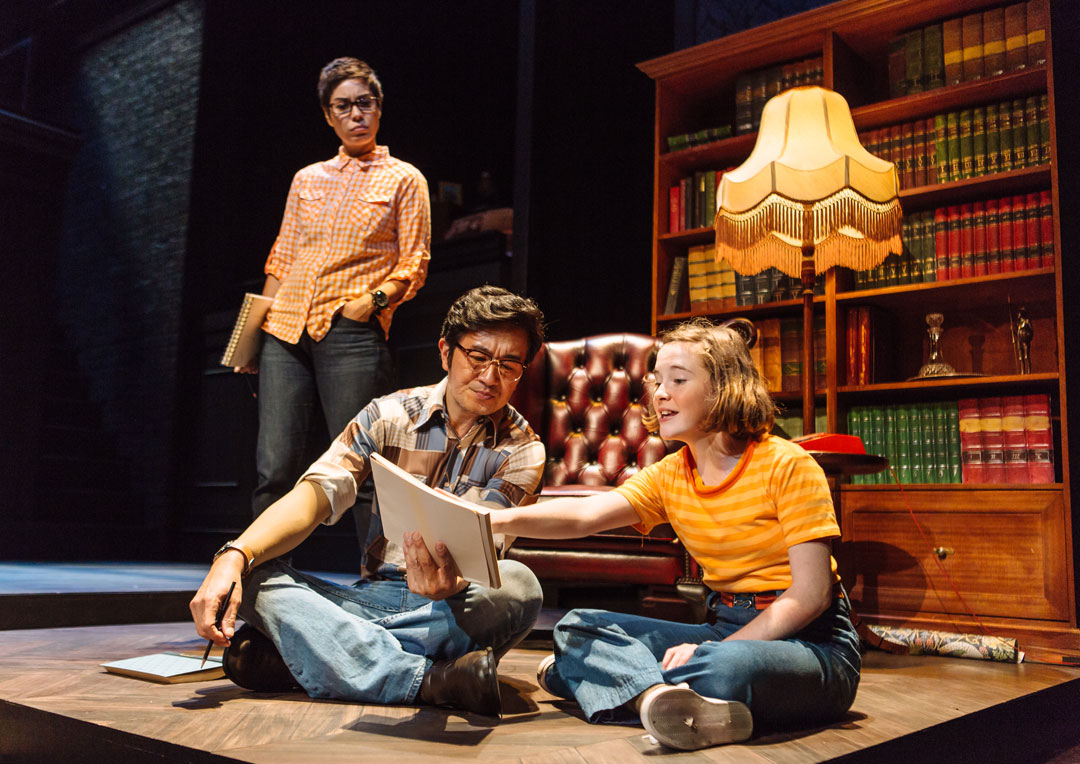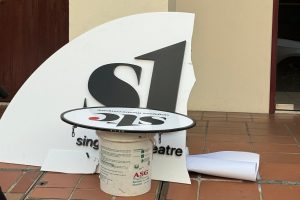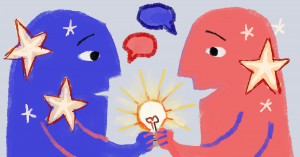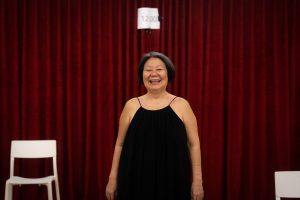Fathers are a lot like airplanes. They launch you to the places you need to go.
This is what I think when my breath catches for the first time during Fun Home, Pangdemonium’s latest musical. On stage, young Alison is being lifted into the air by her father’s feet as he lies on the floor. She balances on her stomach, mimicking an airplane. I’m reminded of when my dad would piggy-back me as he ran around our living room.
I was young, and so happiness was a smile on my face, arms outstretched, hair in a sweaty mess. For a brief moment, on my father’s back, I was invincible.
Until I became an adult, I never realised which memories from childhood I had chosen to hold on to. But now they materialise in the unlikeliest of places, like debris floating to the surface after a plane crashes in the ocean.
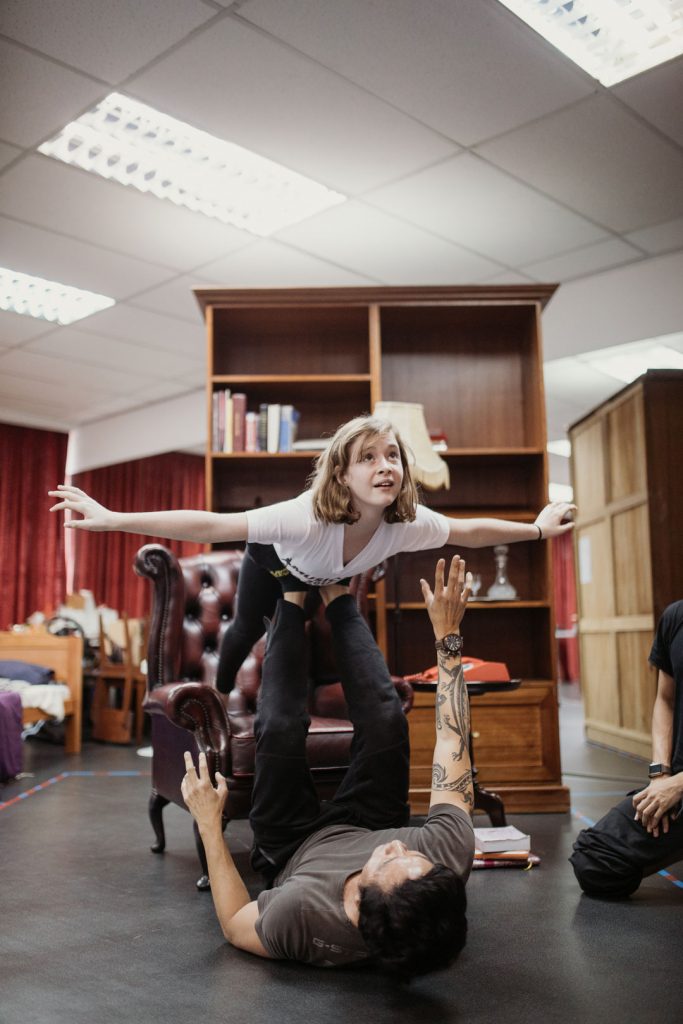
In doing so, it finds tender ways to talk about the universal experience of seeing your parents in a new light as you grow up.
As with most Pangdemonium productions, the acting is visceral. Yet, because Fun Home touches on something as intimate as family, it’s more than mere entertainment. Every musical number and dialogue is charged with an electric tension, as though the cast knowingly taps into a deep part of their own family history.
Nikki Muller, who plays adult Alison, reveals, “My mother is gay and there’s suicide in the family. Like Alison, I’m going through my own healing journey. We all know when you are trying to let go of something, you have to feel it all over again.”
She also shares that reading the graphic novel to prepare for her role provided an opportunity for a “real meaningful conversation with [her mother] about how tough it was to come out”.
It helped her “understand a marriage that couldn’t really be because their sexuality wasn’t authentic”.
Understandably, these are not fun topics to discuss with one’s parents, especially as a child. But Fun Home encourages difficult conversations, and serves as an important reminder that our parents too are only human.
Nikki shares, “When I sit and analyse, I start to ask myself questions about moments in my childhood that I only look at now, because I’m forced to with this character. It brought my mother and I much closer.”
Likewise, Elena Wang (who plays college Alison discovering her sexuality) believes that you start to see your parents as ‘human’ only when you become an adult yourself.
“You realise they also have faults and make mistakes, and are actually doing the best they can to raise you. It’s nice to find a middle ground with them as an adult when you can better understand them. Your perspective shifts, so you also form a friendship with them,” she says.
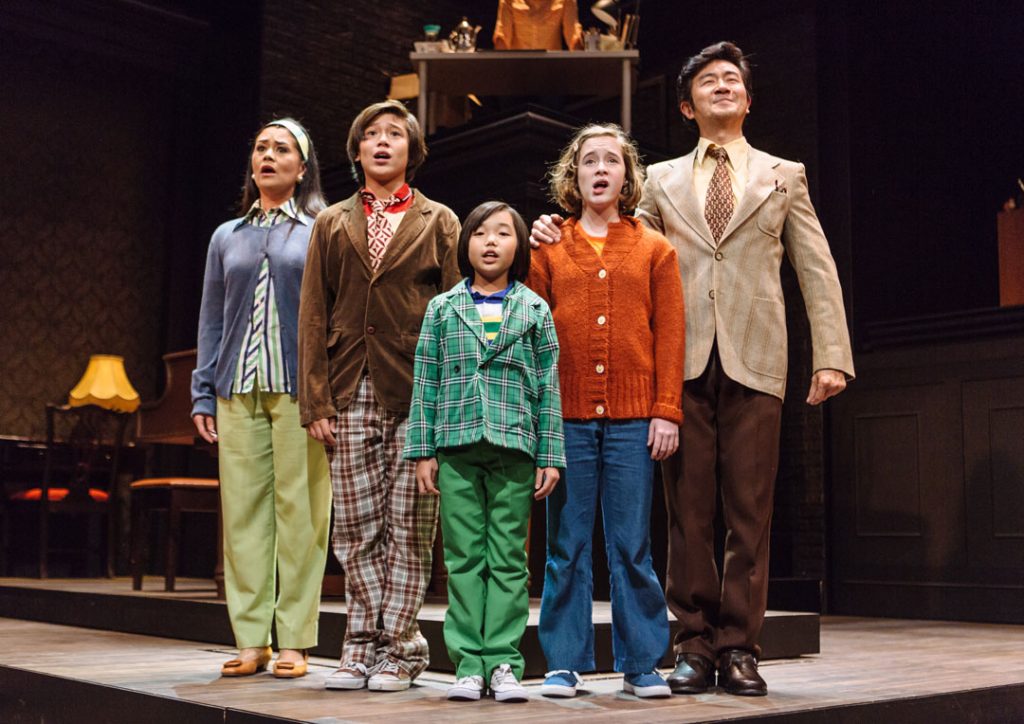
On stage, nowhere is this more clearly seen than through the portrayal of Bruce (played by Adrian Pang) and Helen Bechdel (played by Monique Wilson). Alison’s parents are emblematic of a generation where things are felt but never said.
The secrecy that suffocates the Bechdel family is also reflected in several songs. In Days and Days, Helen sings about painstakingly maintaining her family’s happy facade, while Telephone Wire towards the end deals with Alison’s hesitation in broaching uncomfortable topics with her father.
But the line ‘maybe not right now’ is what really sticks. It is repeated throughout the musical, each time seemingly more hysterical than the last. With every mention, whatever’s bubbling underneath threatens to explode onto the surface.
All of a sudden, I remember the walls my parents built—attempts to protect their children from one thing or another but that ultimately just kept them out.
To all the subliminal ways that family shapes who we are, even way past our childhood, Benjamin Kheng is no stranger. Acting for the first time with Pangdemonium, he plays several supporting roles.
“So much of me is how my parents raised me,” he shares. “Lots of deep-seated issues slip under until we catch ourselves years later as different shades of our family, or deliberately avoiding those things. My mom was incredibly hilarious and loving, but also could never gain full control of her emotions. That’s something I always work on subduing for myself. But I keep the good parts, as much as I can.”
Although Pangdemonium candidly admits how Fun Home embraces the reality that parents inadvertently fuck their children up, the cast maintains that it’s also about learning to let that go and owning the person you turn into.
“With family, I think it boils down to two things: humour and love. If you can laugh at and love yourselves, all the rest—forgiveness, unity, acceptance—comes in due time,” Benjamin adds.
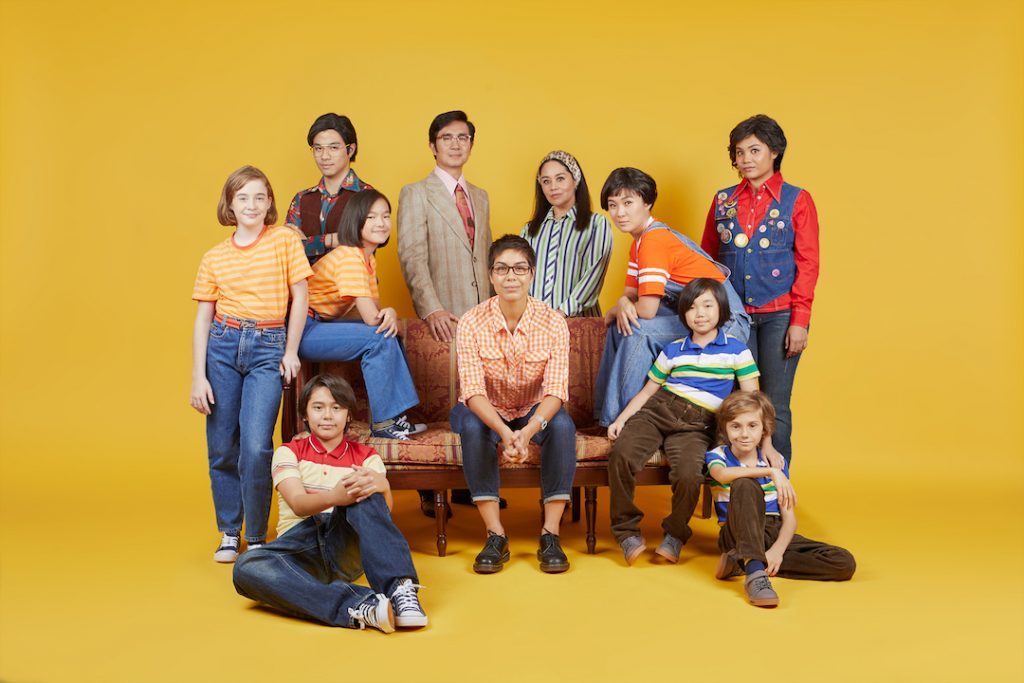
Towards the end, I think again of young Alison hoisted in the air by her father. I think of how alike my father and I are, especially in the ways we love and hurt others. Mostly I think of the indelible mark that parents leave on their children, a reminder that none of us really know what we’re doing in life.
In the brief second of total silence before the audience bursts into applause, I know they understand what Fun Home wants us to: that adulthood is not just about forgiving your parents for the people they are.
It’s also about forgiving yourself for who you are because of them.

